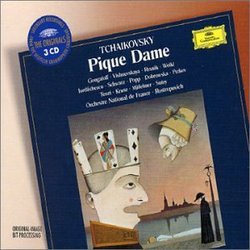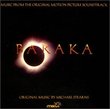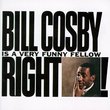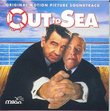| All Artists: Pyotr Il'yich Tchaikovsky, Mstislav Rostropovich, Orchestre National de France, Bernd Weikl, Christine Mitlehner, Dan Iordachescu, Dimiter Petkov, Fausto Tenzi, Galina Vishnevskaya, Hanna Schwarz, Heinz Kruse, Lucia Popp, Peter Gougaloff, Regina Resnik, Rudolf Alexander Sutey Title: Tchaikovsky: Pique Dame Members Wishing: 3 Total Copies: 0 Label: Dg Imports Release Date: 9/14/2004 Album Type: Import Genre: Classical Style: Opera & Classical Vocal Number of Discs: 3 SwapaCD Credits: 3 UPCs: 028946367926, 002894636792 |
Search - Pyotr Il'yich Tchaikovsky, Mstislav Rostropovich, Orchestre National de France :: Tchaikovsky: Pique Dame
 | Pyotr Il'yich Tchaikovsky, Mstislav Rostropovich, Orchestre National de France Tchaikovsky: Pique Dame Genre: Classical |
Larger Image |
CD DetailsSimilarly Requested CDs
|
CD ReviewsStunning performance and recording, undiminished compared to Alexander Z. Damyanovich | Flesherton, Ontario, Canada | 12/06/2003 (5 out of 5 stars) "For a long time, although knowing the stature of "Píkovaja Dáma" in the oeuvre of Chaykóvskiy and in opera generally, it's with pain that I've forced myself at long last to get to know this work. My first experience 15 years ago, not knowing the story, led to me walking out after the 2nd act through no fault of the Canadian Opera Company's performace - all due to my utter abhorrence at the character Hjérman (Hermann) being sucked into his obsession with gambling (which destroys him after the secret cards given to him by the demoness appearing as the Countess' ghost turn out to be incomplete, leading him to kill himself) and in the process destroying both Ljizavjéta and her grandmother the Countess with him in his selfish addiction!!! While my horror about the theme of this story (both the Púshkin original short story and this opera) hasn't abated, this recording (as well as knowing the whole of the story, understanding thus Hjérman's poverty and also his dislike of the Countess) has helped me overcome matters sufficiently to start to enjoy the music. Although the score for my taste has somewhat excessive "classical" mood-writing (some of it, e.g. the 1st mvt. of Act II, hardly sounds like the composer at times!!!), the greatness of the work overall predominates. If "Jevgéñiy Oñégin" is the product of a youthful composer, "Píkovaja Dáma" shows how far the mature notesmith has come along - just listen to the prelude to Act I to hear the difference in orchestration as well as thematic mastery (the melodic sweep of the love theme that leads into mvt. 2 when the curtain rises is so outstandingly Chaykóvskian!!!). It also mirrors the darker subject's mood as opposed to "Jevgéñiy Oñégin" - also corresponding to the more public damage done by Hjérman as opposed to the more internalised suffering occasioned by Oñégin. Top honours go to Rostropóvich, an ever-masterful conductor in the Russian repertoire - although dealing with a French orchestra (like B'ïchkov in his recording of "Jevgéñiy Oñégin"), he truly gets them to give a very Russian sound (quite unlike B'ïchkov, and very much like Gjórgijev!). Also, the diction of the foreign singers (notably Hanna Schwartz as Poljína and Regina Resnik as the unlucky Grafíña/Countess - both are truly splendid!!! - as well as Gougaloff as Hjérman {he is not vocally as good as the others, alas}) indicates that they felt extra-motivated for this effort (Rostropóvich has been a strong motivator!), sounding virtually as Russian as anybody. No less fulsome praise should go to Vishñévskaja, who truly gives us an incandescent Ljíza - that the Soviets preferred to hurt and ultimately as good as expel her and Rostropóvich shows both the evil and the stupidity of all political correctness! DGG's recording also doesn't let the voices for once dominate the orchestra, and with their de-hissing technology the sound is as immaculate as one could wish for. Without wishing to slight in the least Gjórgiev's work with the Kiróv-Mariínskiy recording (which I'm now getting to know - at least 4 if not 5 stars so far {a better Hjérman there undoubtedly!}), this recording is most certainly a most worthy contender, surely no less great! Get it!!! {It's also a question of conceptions - Rostropóvich can be blunter than the at-times subtler Gjórgijev, but it DOESN'T mean that either one ought to be pooh-poohed at the other's expense! In fact, Rostropóvich's handling of the Act I prelude is more electrifying that Gjórgijev (among other things). [There really isn't such a difference at all in terms of playing and sonority between the Orchestre National de France and the Kiróv-Mariínskiy Theatre orchestra - they actually have quite a similar brass-sound as well as wonderfully-lush strings!] Also, Hanna Schwartz, Regina Resnik and Bernd Weikl are no less wonderful than Óljga Bórodina, Irína Arkhipóva and Vladímir Chjernóv in their respective rôles. Coached right, foreign singers need NOT be automatically thought of as inferior in Russian rôles compared to native Russian singers by a long shot!}" A good stop gap, now outdated Santa Fe Listener | Santa Fe, NM USA | 02/03/2007 (3 out of 5 stars) "As the foremost expatriate musician from the Soviet Union, Rostropovich filled an invaluable role for many years. This Pique Dame, recorded in Paris in 1977, couldn't take advantage of many Russian singers, while both chorus and orchestra were French. There's a somewhat unidiomatic feeling to the whole enterprise, especially when compared to Gergiev's splendid version from the Kirov recorded in 1993--not to mention that Rostropovich, never the most skilled of conductors, pales in his interpretation next to Gergiev.
That said, this isn't a reading entirely to pass by. The star attraction is Galina Vishnievskaya, caught too late to sound like a young girl as Lisa but a great interpreter nonetheless. The tenor hero, Herman, is less fortunately caqst. Gougaloff wasn't a star, and he's pushed to the limit to sound convincing in a grueling role that needs power, passion, and tragic force. He's merely good. As, indeed, are the other singers for the most part; Lucia Popp in a minor role and Regina Resnik in the gargoyle role of the Cuountess have their fans. In all, I would rate this reissue, which is in good sound, above the Ozawa version on RCA (Atlaantov and Freni, fine singers both, sound much too old nad tired) but quite a distance below the Gergiev set." |










